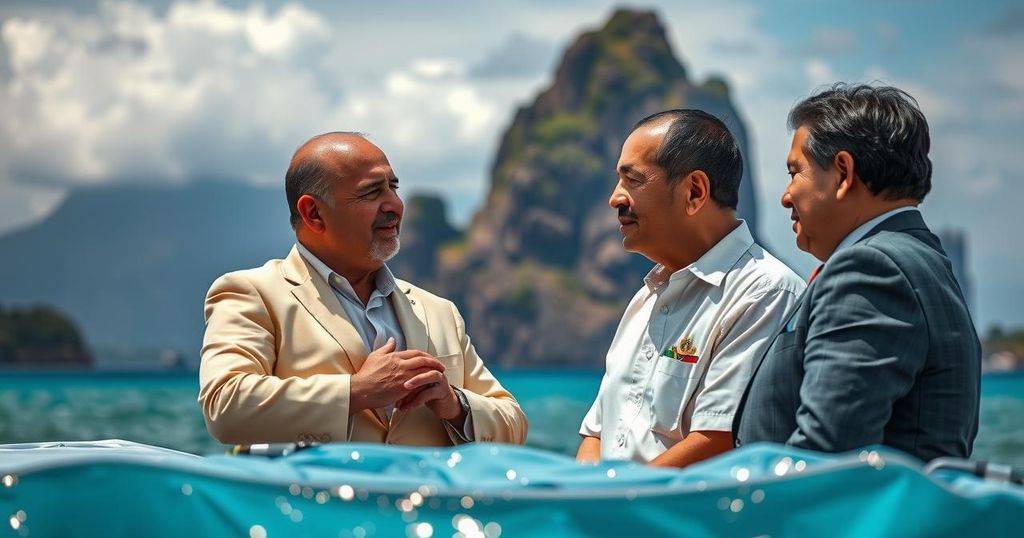Presidents Noboa and Petro met in the Galapagos to discuss environmental protection, border cooperation, drug trafficking, and energy integration. They highlighted the need for sustainable economic development in the Mataje River area, which has been affected by organized crime. Both leaders planned to establish a working group to implement joint initiatives, emphasizing their nations’ commitment to fostering legal economies and environmental well-being.
On Sunday, Presidents Daniel Noboa of Ecuador and Gustavo Petro of Colombia convened at the Charles Darwin Research Station located in the Galapagos Islands. The primary focus of their discussions encompassed environmental protection initiatives, cooperative measures at their shared border, and pressing issues of mutual concern, including drug trafficking and energy collaboration. During their visit, both leaders emphasized the importance of joint efforts to safeguard the natural richness of their territories while enhancing the welfare of their respective populations.
The Galapagos Islands, renowned for their unique biodiversity, serve as a critical location for environmental discussions. This meeting between President Noboa and President Petro is significant given the ongoing challenges both nations face, such as organized crime and climate change. The Mataje River, which partially delineates the border between Colombia and Ecuador, has become a focal point for addressing issues related to drug trafficking and energy integration. Collaborative measures between these two nations are essential to promote regional stability and economic development.
In conclusion, the meeting between Presidents Daniel Noboa and Gustavo Petro signifies a strong commitment towards collaboration in addressing environmental and security challenges in the Ecuador-Colombia border region. By forming a working group to address these issues, both leaders aim to transform areas affected by illegal economies into thriving centers of legal economic activity. Such initiatives hold the potential to enhance regional development and bolster the welfare of their citizens.
Original Source: en.mercopress.com






